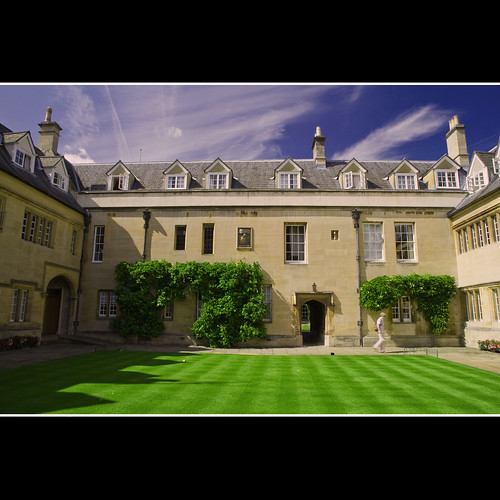Robert Tigue (or Tighe, Teigh), [1] was listed in all the earlier (pre-nineteenth century) printed lists of the Translators, as Leigh says McClure.
Dr. Tighe was born at Deeping, Lincolnshire; and was educated partly at Oxford, and partly at Cambridge. He is characterized as "an excellent textuary and profound linguist." (2)
Field in Market Deepingflickr.com.
He was Archdeacon of Middlesex and Vicar of the Church of All Hallows, Barking, London. This was the church in which Lancelot Andrewes had been christened. (AN). Tighue was also archdeacon of Westminster.
Robert Tighue was a member of Lancelot Andrewes’ Westminster I group, engaged in translating the Old Testament books Genesis - II Chronicles. This was the group of whom Andrewes’ wrote [to the Society of Antiquaries, 1604] at their commencement:
Most of our company are negligent.Perhaps Tighue was one of the exceptions to this assessment. As far as we know, he had little to distract him from the important work. He may be one of the unsung heroes of the Translation, those who are largely unknown to men, but known to God, and added value to the work.
Dr. Tighe died in 1620 (Nicolson says, 1616), and left his son an estate of one thousand pounds annually. McClure‘s comment:
[This] is worth mentioning because [such an act is] so rarely done by men of the clerical profession.Church Interior, All Hallows, Barking
flickr.com
1. Le Neve's Fast Eccles. Ang. P. 194
2. McClure, Alexander The Translators Revived.






